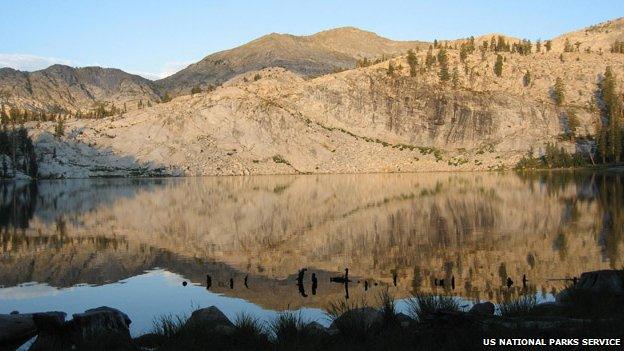The immigrants still 'California Dreamin'
- Published
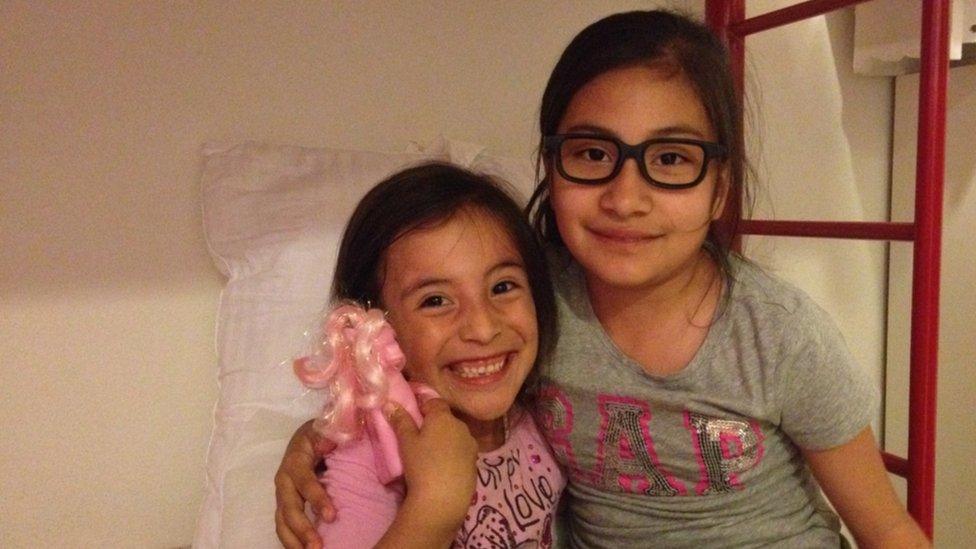
Arianna and Esmerelda's mother Claudia is an undocumented migrant living in San Francisco
A group of drunken men are loitering on the pavement outside Claudia's block of flats in San Francisco. In the run-down lobby, visitors are greeted by a broken fridge.
The studio flat Claudia shares with her two young daughters though is tidy and homely.
Claudia fled from a violent partner and became homeless. She has been rehoused by a San Francisco charity but her problems are far from over.
'Fearful for my children'
Claudia does not want to give me her full name because she is one of the more than 11 million undocumented migrants living in the US, and she is worried by the political rhetoric in the presidential race.
"What Donald Trump said shocked me very much because I'm Mexican," she says.
"I'm fearful that my children would have to fend for themselves because he would want to deport me."
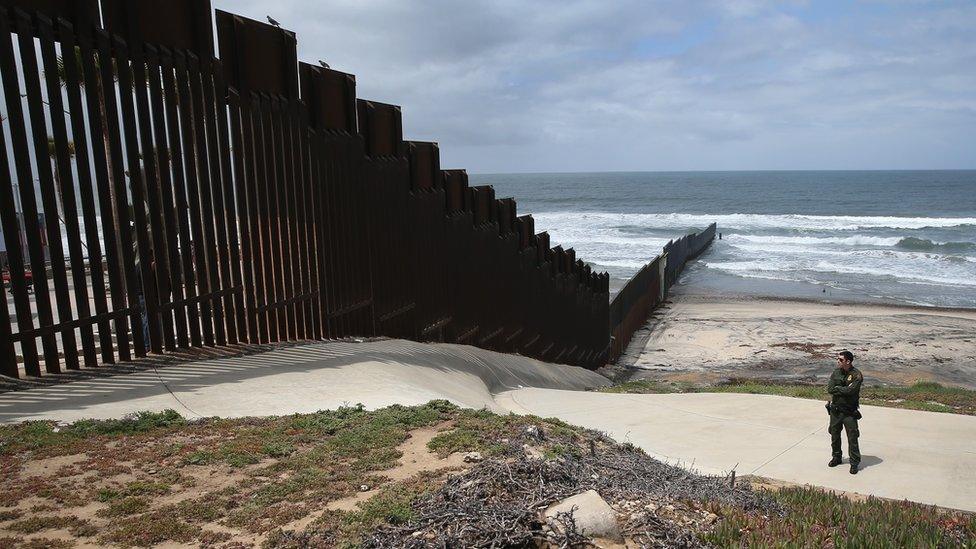
Donald Trump has vowed to build a wall along the border between Mexico and the US if he becomes president
Claudia, and the millions of others who are in the US illegally, face an uncertain future.
Many live in shadowy limbo for decades, with the threat of deportation hanging over them.
Although it is one of those "something must be done" issues, there is little consensus on what that "something" should be.
'Tougher approach'
Donald Trump, the presumptive Republican candidate in the US presidential election, has promised to build a wall across the border with Mexico and to take a much tougher approach towards people living in the US without visas and documentation.
President Obama tried to use his executive powers to normalise the status of some illegal immigrants by removing the threat of expulsion, allowing them to work and giving them access to some government benefits.
But that plan has been challenged by a number of states, led by Texas, and is awaiting a ruling from the Supreme Court.
Donald Trump defends his 'humane' deportation plan
Viewpoint: How would Trump remove 11 million people from the US?
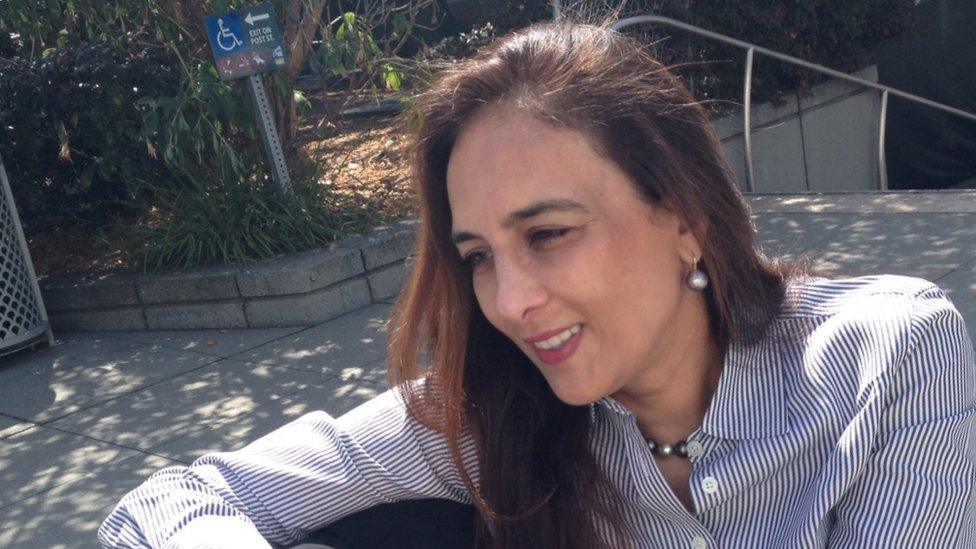
Harmeet Dhillon has run for office twice in San Francisco
Lawyer Harmeet Dhillon, the Republican Party's vice-chairwoman in California, is herself an immigrant from India.
Her father was invited to work as a doctor in the US. She backs a tough line on illegal immigrants.
She says: "Do we have an obligation to allow foreigners to come to our country, live illegally, not pay taxes, skip the line and become citizens before people from my country? Absolutely not."
'Skills shortage'
But in California's Silicon Valley, the immigration debate has a different focus: the need to fill what hi-tech companies claim is a skills shortage.
The majority of the recent arrivals in California are from Asia, highly educated and coming to take up jobs in the booming tech sector.
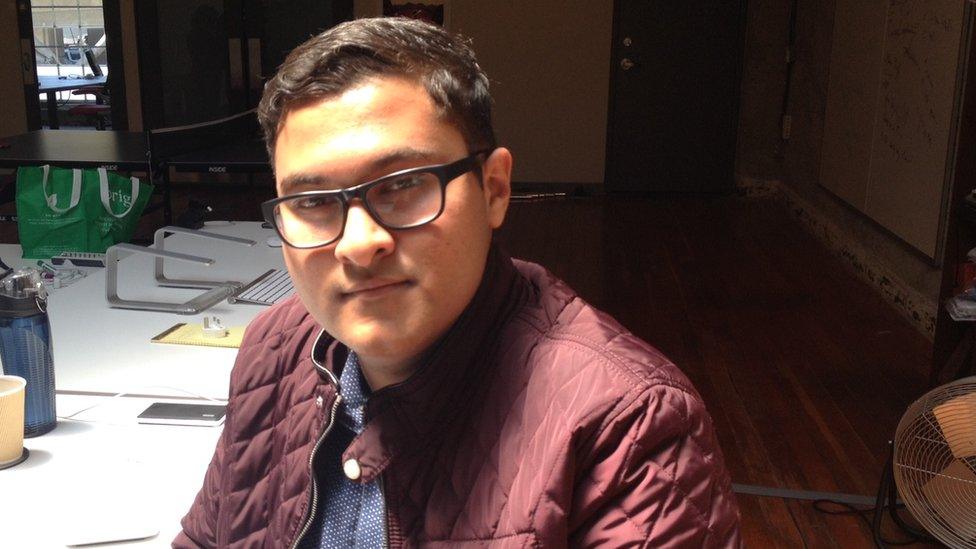
Zaid's company had millions of dollars invested in it by backers, including Facebook
Indian born Zaid Rahman is among them. He is the brains behind Volley, a tech start-up whose backers include Facebook.
"There is such a paucity of great talent here in Silicon Valley, I think recruiting is probably our biggest challenge," Zaid tells me.
"The answer is hiring high-skilled workers from India, China and Europe to come to Silicon Valley to help build these companies which have grand visions to change the world."
But Republican Harmeet Dhillon argues that the tech companies are overstating their case. She thinks that hiring foreign workers is a way of keeping wages down.
"Of course corporations are going to want cheap labour... that's good business."
Instead, she says, they should raise salaries, which would encourage qualified Americans to take up the jobs instead.
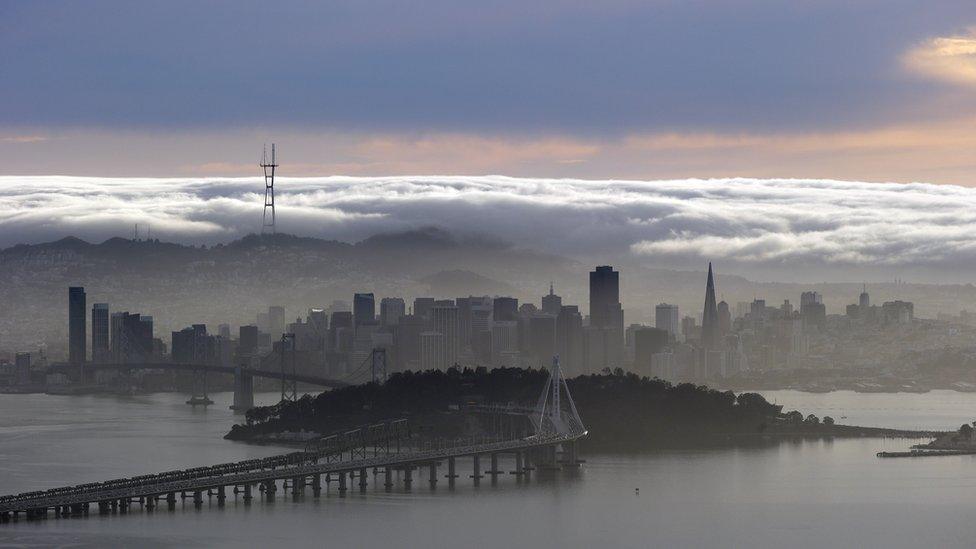
The San Francisco skyline: Almost a third of the population in California is foreign-born
In the meantime, Silicon Valley's newest arrivals from India and China are changing established social hierarchies.
Tomas Jimenez, a sociologist from Stanford University, says the children of these skilled immigrants are extremely motivated and high-achieving. He says this has implications for established white communities.
'Acting white'
One of the places Mr Jimenez has studied is Cupertino, where Apple has its headquarters and about two-thirds of the population is of Asian origin.
"Unlike a lot of places in the US, where the idea of being white is associated with academic and economic success, in Cupertino, that idea gets flipped on its head," he says.
"The terminology 'acting white', that some of the kids use here, means that you don't try that hard in school, are more likely to dabble in drinking and more likely to focus on sport."
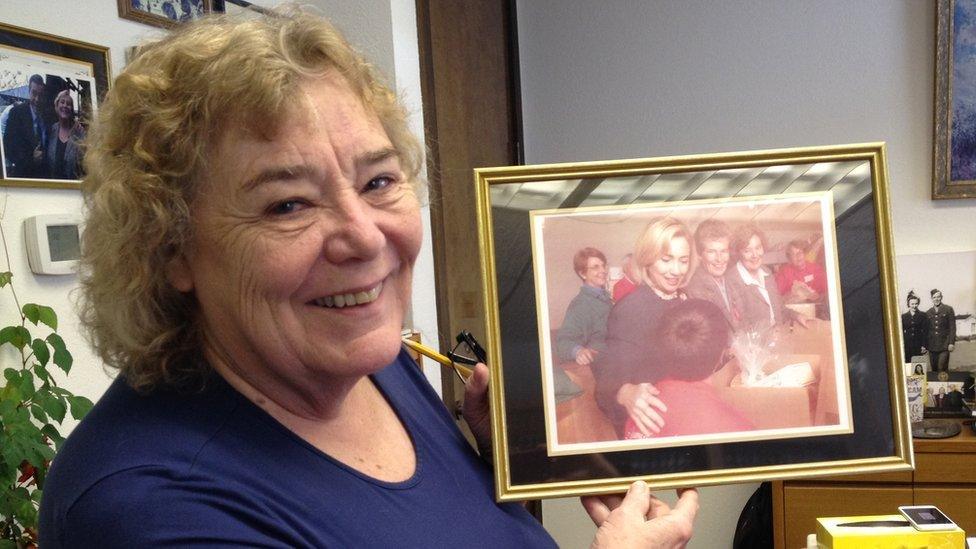
Democratic Congresswoman Zoe Lofgren, from San Jose, has focused on immigration reform in her time in office
In California's wealthy Silicon Valley, it is difficult to find evidence of these social changes causing racial tensions.
But with the immigration debate likely to take centre stage in this year's election, Democratic congresswoman Zoe Lofgren says American voters need to decide which way they want to go.
"One direction is accepting that we are not an all-white country, that being an American is about what you believe in and not the colour of your skin or your national origin," she says.
"I don't know what Trump means by 'Making America Great Again' but I've heard some people say he means 'Make America White Again'.
"I don't think it's possible to do that but some may try to choose that."
In a state like California, where almost a third of the population is foreign-born, perhaps it is easier to accept the inevitability of that change.
But is the US ready to embrace the evolving face of its population?
- Published25 April 2016

- Published17 February 2015
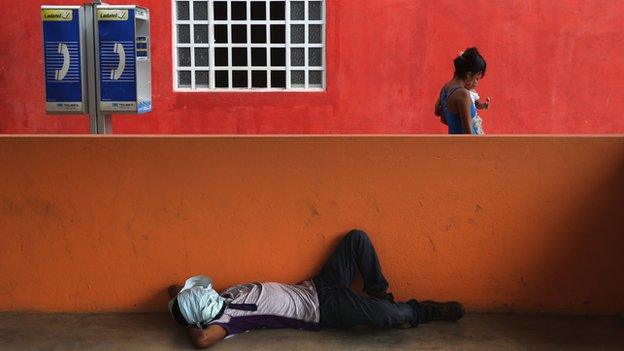
- Published18 October 2014
